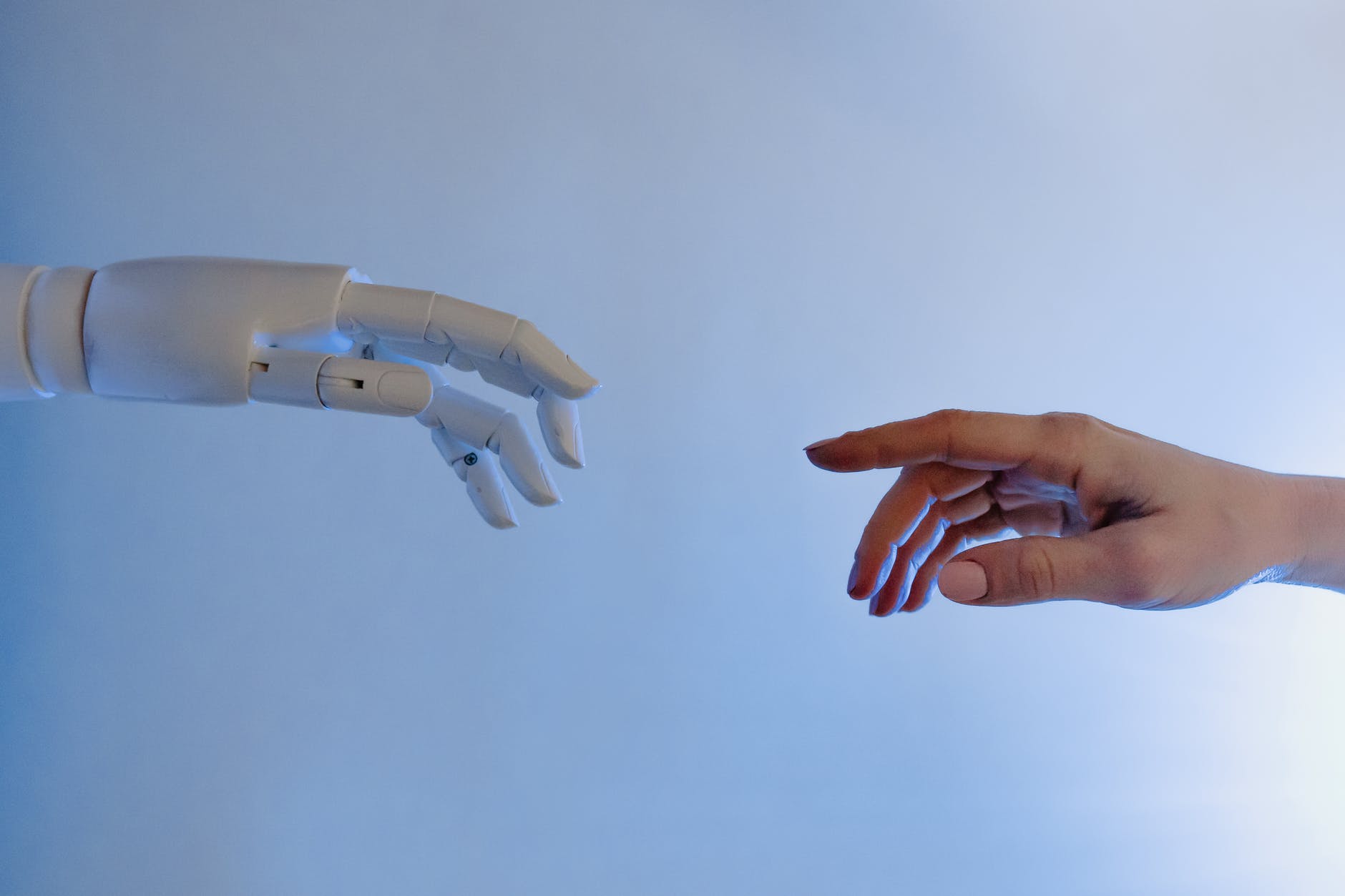Evolution, the brain, and consciousness
According to the theory of evolution by natural selection, one of the most validated and empirically supported theories in science, our bodies, including all of their component cells and organs, arose according to corresponding increases in survival fitness payoffs.
A central claim of today’s mainstream theories of consciousness is that the material brain, an organ of the body, generates both phenomenal consciousness and meta-consciousness. More precisely, the claim is that consciousness emerges from, or reduces to, states of the material brain.
Consistent with Ned Block’s definitions (Block 1995; Schooler 2002; Winkielman 2009, 2011) I describe phenomenal consciousness as the “field” of raw subjectivity whose excitations are experiences. According to the evolutionary model, phenomenal consciousness must provide a survival fitness benefit. If phenomenal consciousness did not have a causally powerful impact on our ability to reproduce, the process of natural selection would not have selected for it.
Without this subjectivity, we would be philosophical zombies, dynamical adaptive systems that perform cognitive functions, but without sentience. They display agentic behavior “in the dark,” without conscious inner life. Of course, we are not philosophical zombies, because we do have a rich inner life, in the form of our phenomenal consciousness and its excitations, experiences.
Since we have phenomenal consciousness, we would expect that the process of evolution selected for phenomenal consciousness, which would in turn necessitate that phenomenal consciousness provide a causally powerful increase in our survival fitness.
The evolutionary problem of phenomenal consciousness
However, this line of reasoning returns a problem when we try to reconcile it with other claims of the mainstream metaphysical worldview of today, under which much of science and computer science is conducted: physicalism. Both reductionist and non-reductionist physicalism encounter the following paradox, which I call the evolutionary problem of phenomenal consciousness.
Under physicalism, all entities are physical, meaning that they are exhaustively described by the equations of physics. That is, they are purely quantitative. For example, subatomic particles can be exhaustively described by quantitative parameters such as spin, mass, charge, etc. According to physicalism, once you have detailed all of the quantities associated with an entity, you have said all that there is to say about that entity.
Therefore, entities lack any qualities, such as colors, textures, smells, etc., whatsoever. They are purely quantitative and not at all qualitative, in and of themselves. The qualities that we experience when we perceive these entities are, under physicalism, generated by our brain. They are more akin to controlled hallucinations, because the entities themselves lack any inherent qualities.
Physicalism also claims that the quantities that are inherent to physical entities are what allow those entities to be causally efficacious. For instance, the charge of subatomic particles determines if they will causally attract or repel one another.
All chains of cause and effect under physicalism are describable by quantities alone, namely by the equations of physics. In the closed-causal model that this worldview holds to be true of reality, only quantities, and not qualities, can have causal power on other entities.
The problem is that phenomenal consciousness is fully qualitative, and not at all quantitative. For instance, knowing the quantitative frequency of the color red will not tell you what it is like to experience the qualitative color red, as demonstrated by the famous thought experiment about Mary the neuroscientist (Jackson 1982, 1986).
Experiences are purely qualitative. In other words, they should have no causal power in the closed-causal system of the universe, as described by physicalism. That closed causality is supposed to explain every natural phenomenon, including evolution by natural selection and the survival fitness payoffs for organisms in their respective environments and states.
If phenomenal consciousness has no causal power, and thus no impact on our ability to reproduce, then it is irrelevant to the process of evolution by natural selection. The data processing and other cognitive functions that do provide survival fitness benefits could happen without phenomenal consciousness, which shouldn’t even exist, since evolution should not have selected for it. The organism in question would have the same chances of reproducing without phenomenal consciousness as it would with it.
In fact, it would be better for the organism if phenomenal consciousness didn’t exist, because for the brain to produce phenomenal consciousness requires some of the energy that the organism metabolizes. The brain, comprising only about 2% of our body weight, requires more metabolic energy than any other organ, taking 20% of the calories that we consume (Raichle & Gusnard 2002). Therefore, it actually harms the organism’s chances of survival to have this unnecessary and causally ineffective subjectivity adding to the number of calories that the organism must hunt down.
If evolution is true, then we find a contradiction between it and our mainstream metaphysical paradigm, physicalism. Since we have empirical validation of evolution, we should re-examine the metaphysical assumptions of physicalism, especially as they relate to consciousness.
Computer science refutes counterarguments to the problem
A physicalist response might be to attribute various functions to phenomenal consciousness, thus dissolving the problem. However, computer science makes these claims of function difficult to support.
First, one might say that phenomenal consciousness is necessary for attention, which surely has a survival fitness benefit. Our attention allows us to survey our salience landscape for the stimuli that are relevant to our survival. A computer scientist, however, knows that this function of attention can happen in a computer without the inner life of phenomenal consciousness. Operating systems can use interrupts, queues, schedules of tasks, etc., each determined by mechanistic, purely quantitative algorithms, in order to provide the function of attention; that is, directing the system’s limited information processing capacity to prioritized tasks and inputs.
Second, a physicalist might say that consciousness is necessary for an organism to be motivated to survive. Without such motivation, the organism would not perform behaviors that support its survival. However, under physicalism, motivation is a calculation. Once again, there is an algorithmic mechanism by which an organism maximizes the benefits of an action while minimizing the risk. In other words, the organism seeks out the most efficient way of performing a task, limiting the energy that it needs to expend in order to obtain its goal/output. Computers perform this very same function without phenomenal consciousness.
Third, perhaps phenomenal consciousness is necessary for our perception of time, which enables our ability to learn and adapt. We have episodic memories, which define what we consider our past, and we have a sense of the present at any given point in time. Without consciousness, how could we delineate between the two, which is necessary for us to learn how to maximize our benefits and minimize our risks? Once again, computers perform the same function, by discriminating between datastreams. Without phenomenal consciousness, your phone can “know” the difference between a photo you took today, a photo you took a year ago, and a video streaming live on YouTube. That routing can and does occur without internal subjectivity.
Fourth, a physicalist who acknowledges the evolutionary problem of phenomenal consciousness could argue that consciousness is a spandrel, one of the “byproducts (‘spandrels’) of other traits that were selected” (Coyne 2020). In this way, one could still account for phenomenal consciousness without the seeming paradox between it and the theory of evolution by natural selection.
This is a better counterargument, but runs into several problems of its own, not least of which is that the very idea of spandrels is a contentious one in biology. It’s not clear what the definition of a spandrel actually is, as the experts continue to debate it (Dennett 1995, 1996). Regardless, spandrels typically do provide some kind of function, byproduct or not, but according to the epiphenomenalism claimed by physicalist theories of consciousness, phenomenal consciousness can’t perform any function at all. It is purely qualitative and not at all quantitative, meaning it doesn’t have any causal power in a closed-causal system.
Additionally, to claim that the brain’s ability to generate purely qualitative experiences from purely quantitative matter, which is one of the greatest problems (Chalmers 2003) and unexplained mysteries in science, is a mere byproduct of evolution seems outstanding, and would require outstanding evidence.
As philosopher Bernardo Kastrup points out, physicalists contend that phenomenal consciousness is an emergent epiphenomenon of the vast complexity of the brain. That complexity is so great that we currently do not fully understand how the brain could give rise to consciousness. Instead, there is a promissory note that, once we understand the brain, we’ll solve the hard problem of consciousness.
If consciousness is an epiphenomenon of the brain’s vast complexity, then it is unreasonable to also argue that consciousness is just a functionless byproduct of other selected traits, and a waste of metabolic energy in the most costly organ of the body (Kastrup 2021). To suggest both claims is, itself, an immediate internal contradiction for physicalism.
Computer science again helps us see the key point here: a computer’s complexity can increase, giving it more and greater functions, without the need for phenomenal consciousness. Because phenomenal consciousness lacks causal power in a closed-causal system, it is evolutionarily unnecessary, and therefore the brain would have evolved in that same way. As the brain’s complexity increased, so too would its cognitive functionality, but without phenomenal consciousness.
Conclusion
There is, therefore, a paradox between the metaphysical physicalist claim that the brain gives rise to phenomenal consciousness and the theory of evolution by natural selection. I’ve herein referred to this as the evolutionary problem of phenomenal consciousness.
As a purely qualitative “entity” with no inherent quantities, phenomenal consciousness has no causal power in a closed-causal system, such as physicalism claims the universe to be. Phenomenal consciousness cannot provide us any survival fitness payoffs in such a closed-causal system. Therefore, because of its lack of impact, and because there would be a metabolic cost to generating phenomenal consciousness, evolution by natural selection would not have selected for phenomenal consciousness.
And yet it does exist. Regardless of its metaphysical status, phenomenal consciousness is epistemically fundamental, in that we can’t know anything else except by, through, and in our consciousness. A denial of its existence is logically incoherent, because that would be a case of consciousness denying its own existence.
Therefore, either evolution by natural selection is wrong, or physicalism is wrong. Since we have convincing empirical support for evolution, I argue that we’ve arrived at an internal contradiction of the physicalist paradigm. We need to reassess the claims and logic therein, and identify where we made an error.
Other metaphysical paradigms, particularly those that do not require the evolution of consciousness (such as analytic idealism), may provide more promising explanations of our internal subjectivity than does physicalism, which here encounters yet another paradox surrounding phenomenal consciousness.
Note: this article was inspired by Bernardo Kastrup’s essay, “Consciousness Cannot Have Evolved,” which can be found in his book, Science Ideated: The fall of matter and the contours of the next mainstream scientific worldview (2021), and also on IAI News here: https://mindmatters.ai/2020/02/bernardo-kastrup-consciousness-cannot-have-evolved/. Credit given to him for the foundation of the above argument.
Bibliography
Block, N. (1995). On a confusion about the function of consciousness. Behavioral and Brain Sciences, 18: 227-287.
Chalmers, D. (2003). Consciousness and its place in nature. In: Stich, S. & Warfield, T. (eds.). The Re-emergence of Emergence. Oxford, UK: Oxford University Press.
Coyne, J. (2020). Muddled philosopher: Consciousness could not have evolved. Why Evolution is True. 7 February. [Online]. https://whyevolutionistrue.com/2020/02/07/philosopher-consciousness-could-not-have-evolved/. [Accessed 22 January, 2023].
Dennett, D. (1995). Darwin’s Dangerous Idea: Evolution and the Meanings of Life. New York, NY: Simon & Schuster.
Dennett, D. (1996). The scope of natural selection. Boston Review, October/November: 34-38.
Jackson, Frank (1982). “Epiphenomenal Qualia”. Philosophical Quarterly. 32 (127): 127–136. doi:10.2307/2960077. JSTOR 2960077.
Jackson, Frank (1986). “What Mary Didn’t Know”. Journal of Philosophy. 83 (5): 291–295. doi:10.2307/2026143. JSTOR 2026143.
Kastrup, B. (2021). Science Ideated: The fall of matter and the contours of the next mainstream scientific worldview. Washington, USA: iff Books.
Raichle, M. & Gusnard, D. (2002). Appraising the brain’s energy budget. 99 (16) 10237-10239. https://doi.org/10.1073/pnas.172399499
Schooler, J. (2002). Re-representing consciousness: dissociations between experience and meta-consciousness. Trends Cogn. Sci. 6., 339–344.
Winkielman, P., & Schooler, J. W. (2009). Unconscious, conscious, and metaconscious in social cognition. In F. Strack & J. Förster (Eds.), Social cognition: The basis of human interaction (pp. 49–69). Psychology Press.
Winkielman, P. & Schooler, J. (2011). Splitting consciousness: Unconscious, conscious, and metaconscious processes in social cognition. European Review of Social Psychology. 22. 1-35. 10.1080/10463283.2011.576580.



